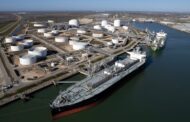Jeff Currie is leaving Goldman Sachs as head of its commodities research team after 27 high-profile years, in a fairwell gift, its commodities team produced 10 lessons learned.
“From understanding the impact of investment cycles on oil prices to the dynamics of fuel substitution as a market tool to mitigate fundamental imbalances, Jeff and team significantly contributed to a better understanding of how the physical nature of commodities and their potential bottlenecks are priced,” says the send-off. Those lessons can be put to good use now that oil
CL.1,
+1.79%
is knocking on the door of $100 per barrel again.
We’re going to start actually with lesson eight, which seems most noteworthy now. And that lesson is that cartels can control the curve shape, but not the long-term price.
Why? Because prices, over the long term, are set by the marginal high-cost producer. OPEC is basically the exact opposite, with Saudi Arabia having the easiest oil to dig out of the ground.
That doesn’t mean OPEC is useless. Far from it. If non-OPEC producers, like U.S. shale, are pursing fiscal discipline as they are now, then that gives OPEC more pricing power. “Along with solid demand, the three rounds of production cuts since last fall have driven the rally this summer, and our forecast that Brent
BRN00,
+1.16%
will reach $100/bbl in 2024,” say the Goldman team.
Another lesson, and it’s number-three on this list, is that a barrel in the hand is worth two in the bush. That is, the oil market is much more a spot asset than an anticipatory one. It notes research finding oil prices appear four times more responsive to a supply shock happening now — i.e. weather disruption — than to one on the future, such as OPEC announcement about production in coming quarters.
A third lesson is to track the top projects.
This year, for instance, 477 projects together account for over 50% of global oil and gas supply over the next seven years. And the lessons for right now from these top projects is the cost curve has been steepening, while output is shrinking, following project delays, cost inflation and higher taxes.















